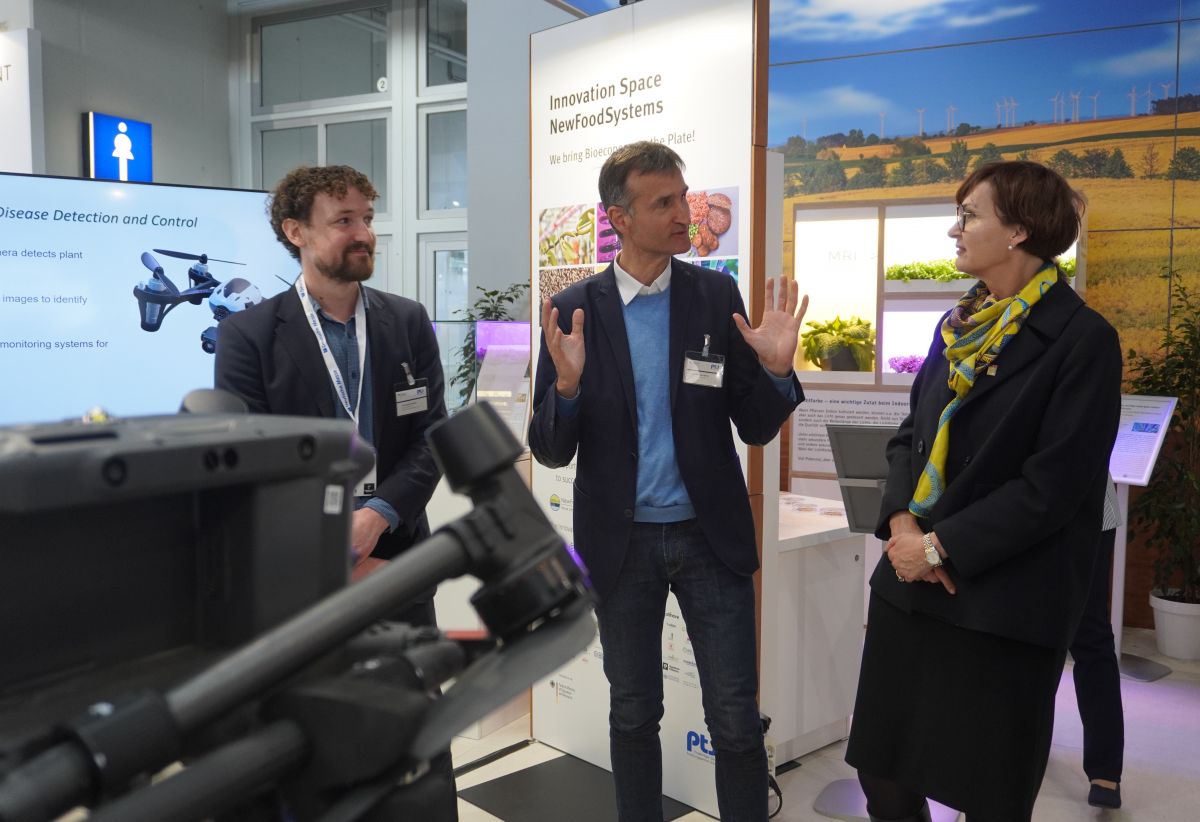A perfect start to the Hanover trade fair: Federal Research Minister Bettina Stark-Watzinger visits the "Agricultural Systems of the Future" at the "Bioeconomy Showcase"
22.04.2024
During Federal Research Minister Bettina Stark-Watzinger's tour of the stand, she was particularly interested in the special sensor technology of the NOcsPS drones and the DAKIS EROSPOT Web. This shows how digitalisation, AI and state-of-the-art technology use are driving forward the transformation of the agricultural sector.
DAKIS will be showing a live version of the new EROSPOT web app on a large TV screen at the trade fair. EROSPOT is a web-based software for identifying the water erosion potential of agricultural land. The software suggests ideal locations for farmers to apply erosion-reducing measures, such as insect barriers.
In addition, the prototype of the DAKIS software will be presented, which is intended to support farmers and political decision-makers in planning biodiversity measures based on ecological and economic considerations. The aim is to integrate ecosystem services, biodiversity and resource efficiency into the decision-making process of farmers. Visitors can test the prototype on the tablet computers provided.
As part of the NOcsPS project, the University of Hohenheim is showcasing two drones with special sensor technology. The multispectral cameras provide high-resolution images of the crop, which serve as the data basis for the subsequent AI-supported image analysis. The data provides a positional accuracy of up to 2 cm and can be used in different ways, e.g. to create fertiliser application maps or to monitor plant diseases. Similarly, the position data can also be used to control manned machines or autonomous field robots. In the medium to long term, such systems could enable the automation of field monitoring and the standardised provision of necessary data for subsequent precision farming applications.
The Agricultural Systems of the Future stand visited is located at the joint "Showcase Bioeconomy" stand. There, 20 current research projects funded by the Federal Ministry of Education and Research (BMBF) and the Federal Ministry of Food and Agriculture (BMEL) will be presented. The "Agricultural Systems of the Future" are represented by the Coordination Centre and the DAKIS and NOcsPS consortia.
